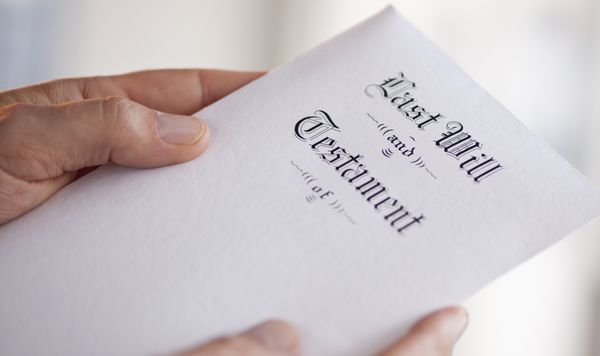
When Jenny Wright's mother died of bladder cancer in 2016 the loss was traumatic enough. But to make it worse, her most recent will was from 1987 when Wright and her brothers were still minors.
"Unfortunately, whatever the most current will says is what they go with, even if it was from 1987," the Augusta, Georgia, resident explains via email. The will was obviously sorely outdated. "It was also written when my parents were still married, and the executors were old financial advisers who are now retired (and living in another state). Getting them to sign away their executive privileges wasn't hard but tracking them down was quite a challenge!"
Advertisement
Probate refers to the legal process for wrapping up the estate of someone who has died. Probate court is where people go to address legal concerns about a dead person's estate. "For example, you would end up in probate court if you want to contest (fight) the validity of a will or if you want to claim part of an estate as a creditor," says Betsy Simmons Hannibal, a lawyer specializing in estate planning and a senior editor for Nolo, via email.
A lot of people don't like to think about their impending death, which is why many estates go unplanned. In fact, only about 55 percent of people age 55 and older have a will in place, according to a 2018 study by Merrill.
If your loved one left a will, this goes before a probate judge who determines whether it's legal. If it's determined that it is, then the executor (who's named in the will) gets to work ensuring that the terms of the will are carried out, seeing that the assets go to the intended beneficiaries and any debts are paid. It's a fairly straightfoward process assuming no one contests the will. Problems arise when a person dies intestate (leaving no will) or leaving a very outdated will, as happened to Jenny Wright. Experts recommend that you get your estate in order so that loved ones don't have to deal with the significant hassle of going through probate court.
"A typical probate process requires specific amounts of notice to creditors, long waits on the backed-up court calendar, and many separate steps — and the estate is usually paying a lawyer every step along the way," Simmons Hannibal says.
In fact, depending on the size and complexity of the estate, probate can take anywhere from nine months to two years to settle, at a cost of 5 to 10 percent of the value of the assets in fees.
Advertisement


